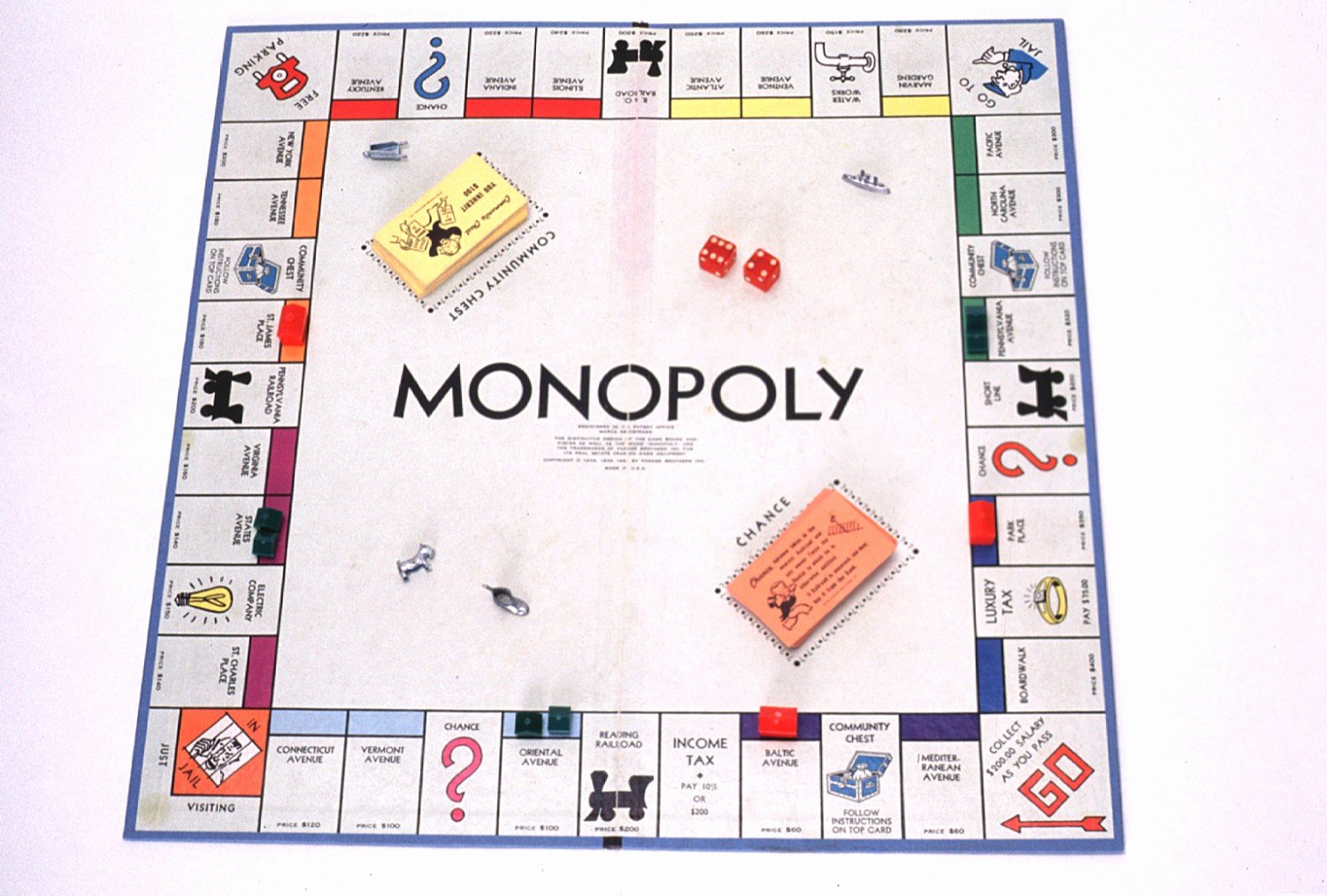
1999.Tabletop games have come a long way since the 1930s when the Parker Brothers first unleashed the game of Monopoly onto the world.

Orbanes, Philip, The Monopoly Companion, 2nd edition. See Also: FAMILY AND HOME, IMPACT OF THE GREAT DEPRESSION ON LEISURE. Nearly two hundred million copies of Monopoly had been sold worldwide by the year 2000. Many believe that Monopoly owes its enduring appeal to what happens off of the game board-the social interaction amongst its players. (Players are obligated to pay rent when landing on an opponent's properties.) Trading of properties is encouraged. Players buy these spaces and attempt to collect complete color groups in order to charge ever-higher rents by building houses and hotels on them. Its game board features a continuous track of forty spaces, twenty-eight of which are properties represented by title deeds. Its object is to bankrupt all of the opposing players. The game published in 1935 is remarkably similar to the standard edition published today. Standard editions sold for $2.50 and deluxe editions went for as much as $25.00. (It requested and obtained the approval of the Catholic Church in Salem to employ its workers on Sundays.) Within eighteen months, more than two million copies had been sold. To running its presses around the clock, seven days a week, to keep up with demand for this one game. Located in the Boston suburb made famous by the witch trials of the 1600s (Salem, Massachusetts), the firm went from begging for printing business in Boston Parker Brothers, the nation's best-known game company, had been founded by sixteen-year-old George Parker in 1883, but it was on the verge of bankruptcy when Monopoly arrived in 1935. By 1936, Parker Brothers owned a monopoly on Monopoly.


Phillips's patent on the Landlord Game and the rights for a few other similar games. The firm acquired Darrow's version and its subsequent patent. Word of the game's success reached Parker Brothers. Realizing the potential to provide income for his family, Darrow invested in five hundred printed copies and sold them through a few stores, most notably FAO Schwarz toy stores and the John Wanamaker department store in Philadelphia. Darrow played this early version with his friends, then began to make and sell copies, which preserved the street names from Atlantic City, to others. Monopoly became a fixture at certain eastern colleges, and homemade copies, which usually featured street names from the maker's hometown, found their way eventually to Atlantic City, New Jersey. Her 1903 game espoused Henry George's single tax theory (that only real estate should be taxed). Darrow was the first to publish Monopoly, which evolved from Elizabeth Magie-Phillips's Landlord Game. Parker Brothers acquired the game from an unemployed steam-heating repairman, Charles Darrow of Mount Airey (Philadelphia), Pennsylvania. Few realized that its board spaces were named afterĬounterparts in one specific community ( Atlantic City, New Jersey), and fewer still knew that the game's predecessor dated back to the turn of the century.

Its success was actually enhanced by the Great Depression: Millions of people from Maine to California found its vicarious promise of wealth to be irresistible, in stark contrast to the grim economic realities of their daily lives. The Monopoly game was first published by Parker Brothers in 1935 and quickly became the nation's most popular board game.


 0 kommentar(er)
0 kommentar(er)
